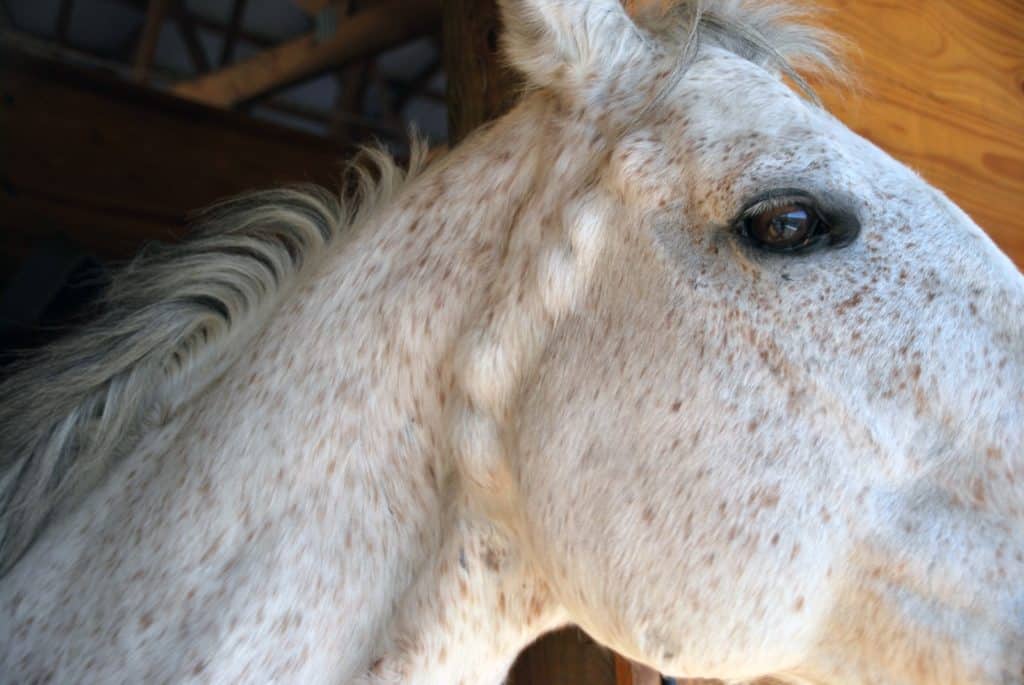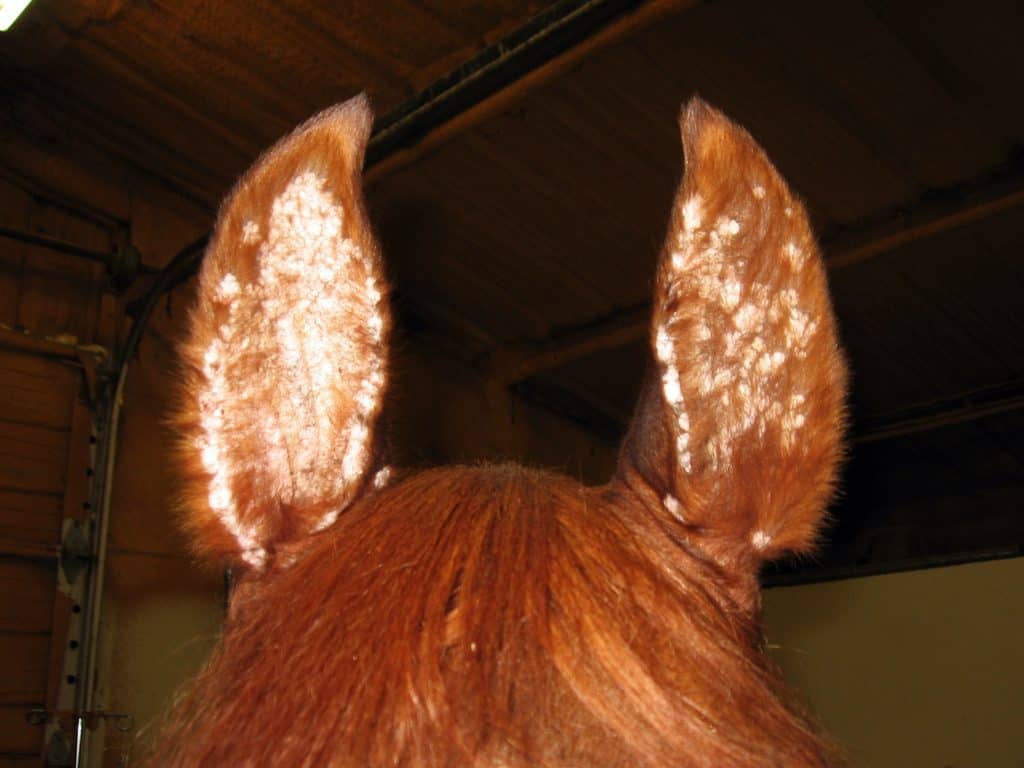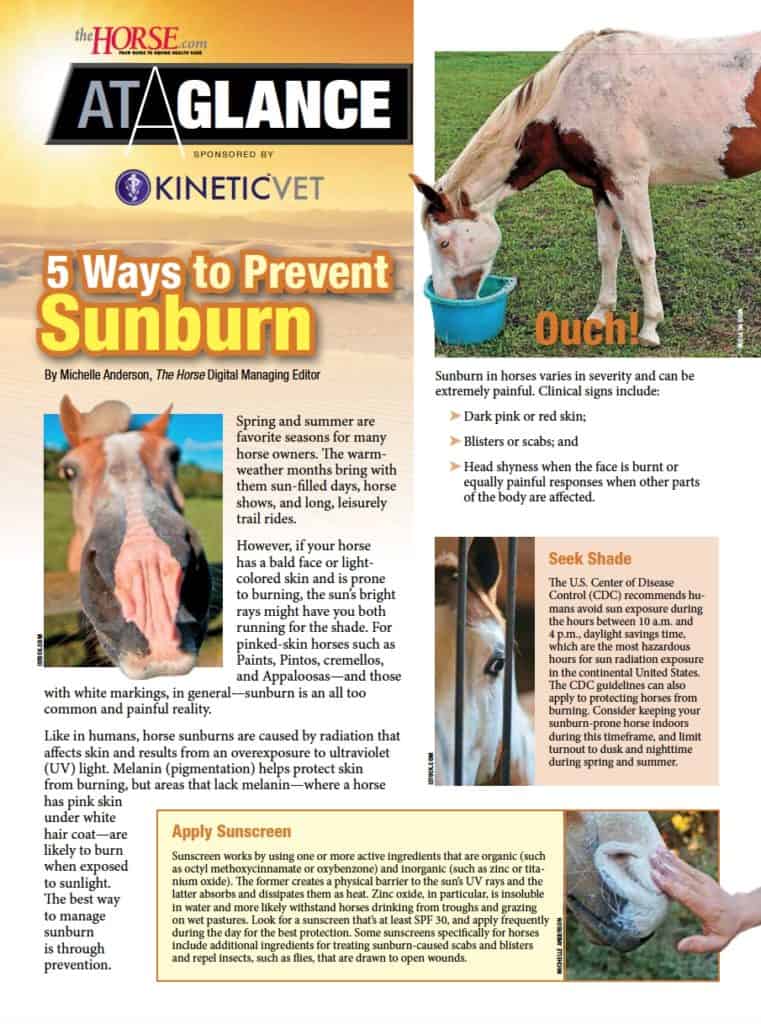
Enter TheHorse.com’s Photo Contest for Sun-Sensitive Horses
Is your horse sun-sensitive? Submit his story and photo for a chance to win a prize pack!

Is your horse sun-sensitive? Submit his story and photo for a chance to win a prize pack!

Anti-Mullerian hormone is a reliable marker for cryptorchidism, granulosa-cell tumors, and, possibly, mare fertility.

Betulinic acid could become a safe and effective treatment for melanoma in horses, researchers said.

Researchers studied a group of related Exmoor ponies to find the chromosomes that could carry IBH-related genes.
Researchers are studying immunotherapy using an antibody called anti-CD47 for reducing equine skin tumors.

Squamous cell carcinoma is one of the most common cancerous tumors of the equine eye.

What’s causing the hives, hair loss, and scabs on your horse’s body?

Researchers found that applying 5% imiquimod cream resulted in clinical resolution in 93% of the treated ears.

A veterinary dermatologist offers tips on how to properly diagnose, treat, and prevent pastern dermatitis, or scratches.

Genetic differences in immune function could explain why some horses develop sarcoids and others don’t, researchers say.

Learn about this frustrating contagious equine skin disease and how to prevent its spread.

Use this cheat sheet to protect your horse from the sun’s harmful UV rays.

This hormone-secreting tumor can form in horses’ adrenal glands, potentially causing damaging high blood pressure.

Sun damage is serious in horses. In this infographic, find how to protect you pink-skinned horses from the sun.

Equine skin issues can be difficult to diagnose and frustrating to treat. Experts share practical solutions for dealing with sunburn, rain rot, skin allergies (sweet itch), and more.

Learn about a variety of skin issues and prepare to battle tricky-to-treat conditions with these free resources.
Stay on top of the most recent Horse Health news with
"*" indicates required fields